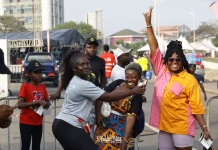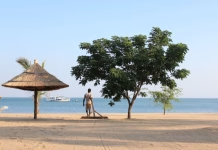
The Western Togoland issue is one of those political hot potatoes that defy a simple solution.
Those who believe that Western Togoland should be an independent nation argue that the solution which the United Nations implemented in 1957, making the territory a part of Ghana, was unfair. But, unfortunately, they have only been making this case after the fact.
Now, it was known that there were strong views against union with Ghana by sections of the populace. Yet, no boycott of the plebiscite occurred. This was probably because the anti-unionists thought they would be victorious in the plebiscite. They failed, however, and on the basis of a report submitted to the UN by the Commissioner appointed by the Trusteeship Council to organize the plebiscite, the UN General Assembly passed a resolution, on 13 December 1956, providing for the union of Western Togoland with Ghana.
This is what the resolution [Number A/RES/1044] says:
“The future of Togoland under British administration:
“The General Assembly, Recalling that, by resolution 944 (X) of 15 December 1955, it recommended…. that a plebiscite be ….conducted in the Trust Territory of Togoland under British administration by the Administering Authority, in consultation with, and under the supervision of, a United Nations Plebiscite Commissioner, in order to ascertain the wishes of its inhabitants in regard to the union of their Territory with an independent Gold Coast, or otherwise;
“Having received the report of the United Nations Plebiscite Commissioner on the organization, conduct and results of the plebiscite, and having noted, in particular, the conclusion contained in the report that the plebiscite was held in an atmosphere of freedom, impartiality and fairness,
“Having also received the report of the United Kingdom Plebiscite Administrator;
“Noting that the majority of the inhabitants of the Trust Territory participating in the plebiscite have expressed themselves in favour of the union of the Territory with an independent Gold Coast,
“Noting also the recommendation of the Trusteeship Council in its resolution 1496 (XVIII) of 31 July 1956 that appropriate steps be taken…. for the termination of the Trusteeship Agreement for the Territory to become effective, upon the attainment of independence by the Gold Coast,
“Having been informed by the Administering Authority [the UK] that it is the intention of the Government of the United Kingdom… that the Gold Coast shall become independent on 6 March 1957,
“1. Expresses its approval of the union of the Territory of Togoland under British administration, with an independent Gold Coast;
“2. Resolves, with the agreement of the Administering Authority, that, on the date on which the Gold Coast becomes independent and the union with it of the Territory of Togoland under British administration takes place, the Trusteeship Agreement approved by the General Assembly in resolution 63 (I) of 13 December 1946, shall cease to be in force;
“3. Requests the Government of the United Kingdom to notify the Secretary-General [of the UN] as soon as the union of the Territory of Togoland under British administration with an independent Gold Coast has been effected;
“4. Requests the Secretary-General to communicate to all Member States and to the Trusteeship Council… the notification by the Government of the United Kingdom Great Britain … referred to in paragraph 3 above.
(619th PLENARY MEETING [OF THE UN GENERAL ASSEMBLY] 13 December 1956).
(NOTE 1 Official Records of the Trusteeship Council, Eighteenth Session, Annexes, agenda item 12, documents T/1269 and Add.1]
Now, it is true that after the plebiscite, some Western Togoland politicians, including Mr S G Antor, Ms Regina Assamany and The Rev. F R. Ametowobla, travelled to the UN to apprise the Trusteeship Council of doubts they harboured that the implementation of the plebiscite results would be in the best interests of their people. They failed, however, and on 6 March 1957, the formal union of Ghana and Western Togoland was effected.
In politics, people sometimes lose, and sometimes they win. Suppose the group that was unhappy with the plebiscite result had decided to pursue their case right up to say, the International Court of Justice, would there not have been a decision – one way or the other – that they would have had to live with? Suppose that decision upheld that of the UN General Assembly? Was there the slightest chance that if they gone to the World Court, it would have disregarded the decision of the UN Trusteeship Council, after the Council had gone to the trouble of organizing the plebiscite – a decision confirmed by the General Assembly at that? I doubt very much whether the UN would have been told that it had erred.
Of course, it is impossible to please everyone when one is running a government, but it would be sagacious of the Akufo Addo administration to “hasten slowly” in applying the full force of the law against the Homeland Study Group Foundation members who have made a public declaration that they are setting up a separate state in Western Togoland.
The NPP administration has, itself, recognized the need to accommodate those in Ghana who want it to devolve more power to the regions. It cannot please everybody, even with the new regions it has created. But it can explore avenues of further trying to erode the seeds of irredentism, as far as possible.
Meanwhile, Ghana should pull its full weight to ensure that ECOWAS fully implements its protocols on trade and currency. This is because, the more tangible West African co-operation becomes, the less relevant will the call for separatism be. Indeed, the separatists could eventually be shunned by their own societies, especially when the fruits of national and regional unity begin – visibly – to reach down to them.
www.cameronduodu.com




















